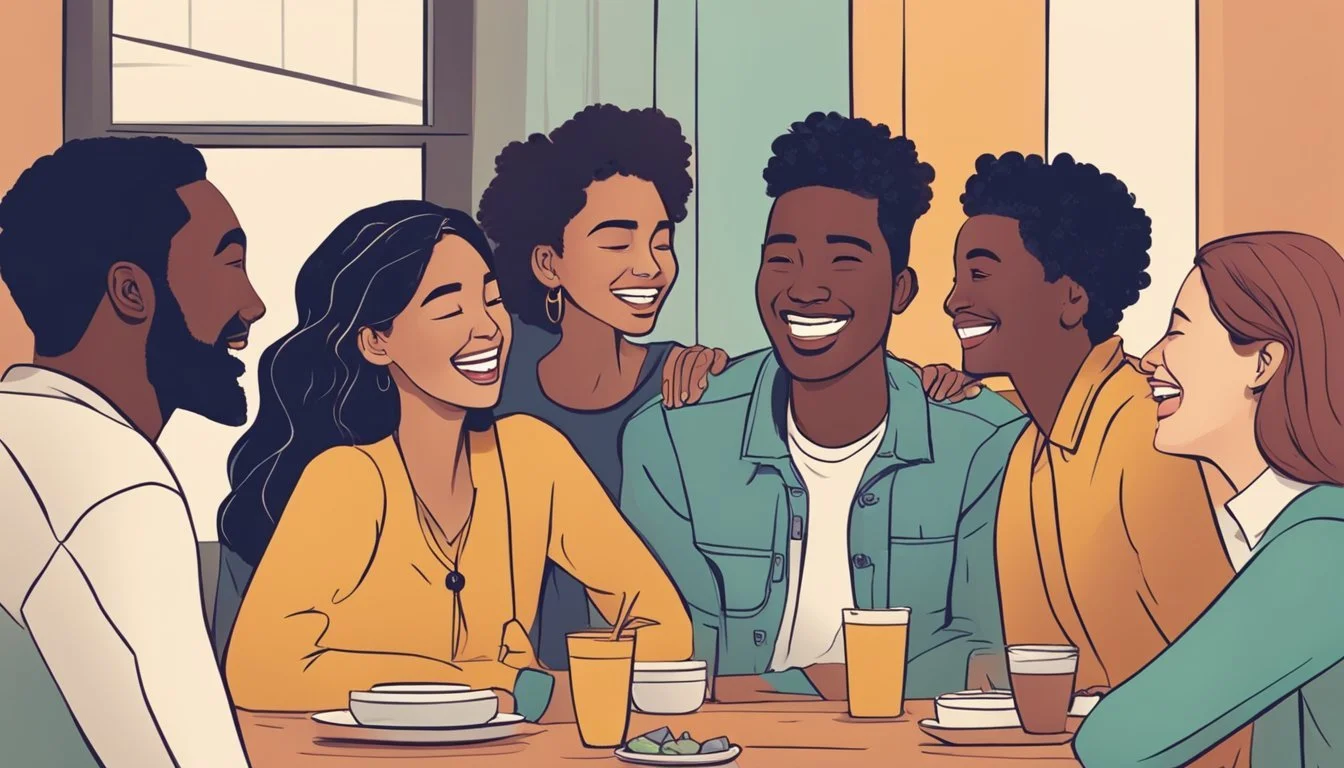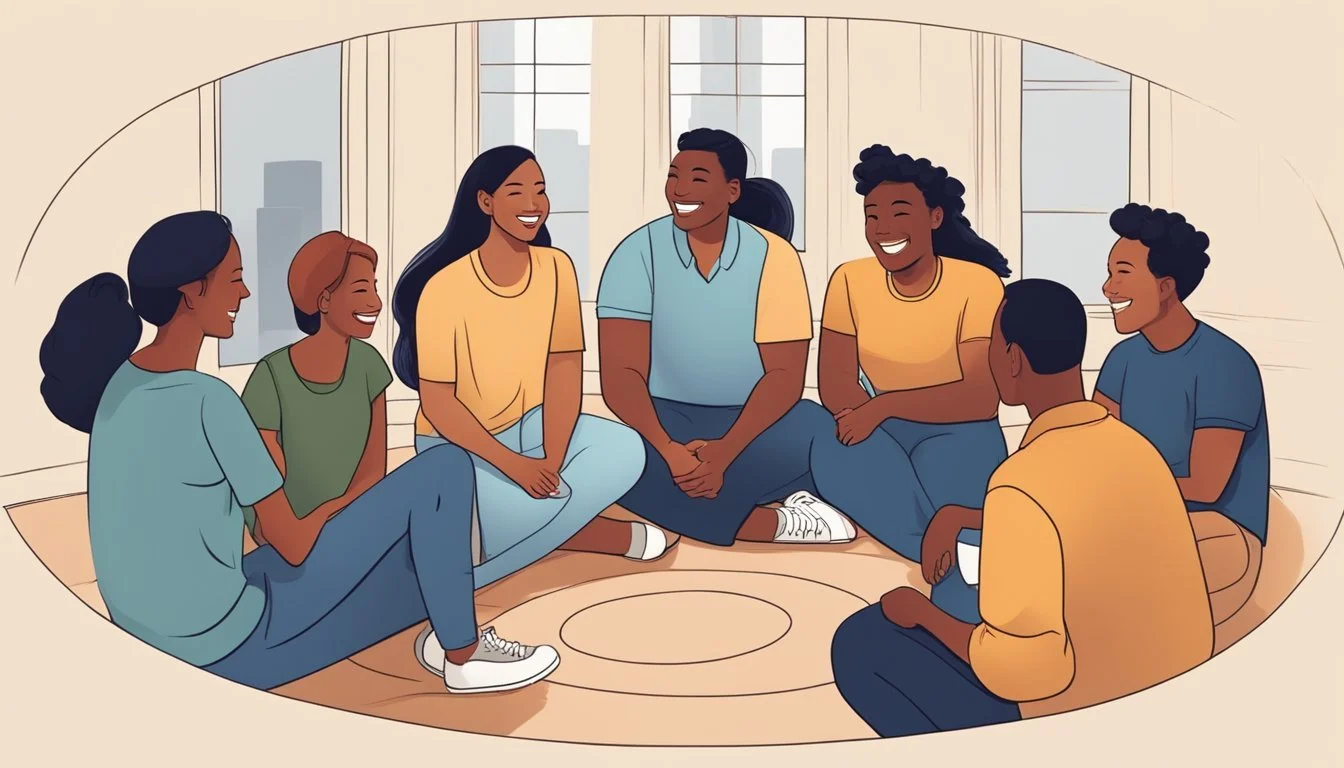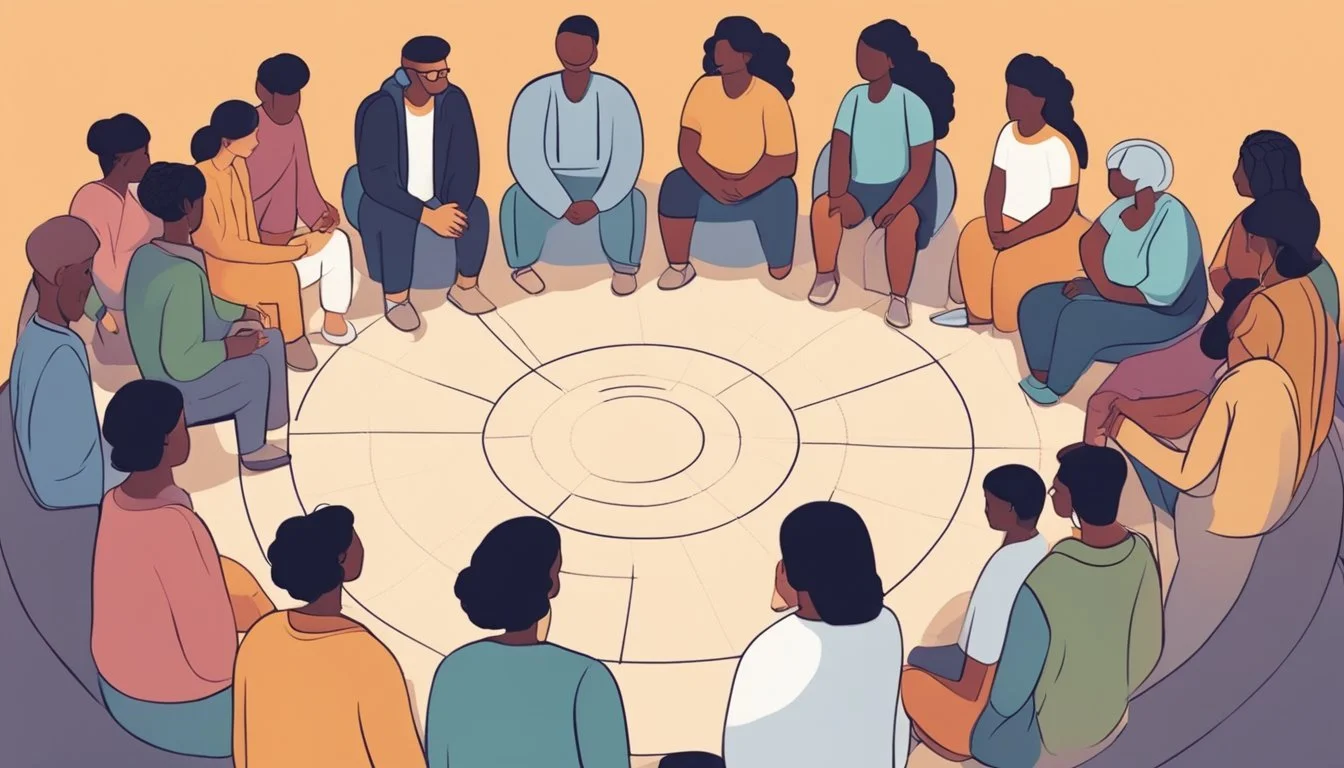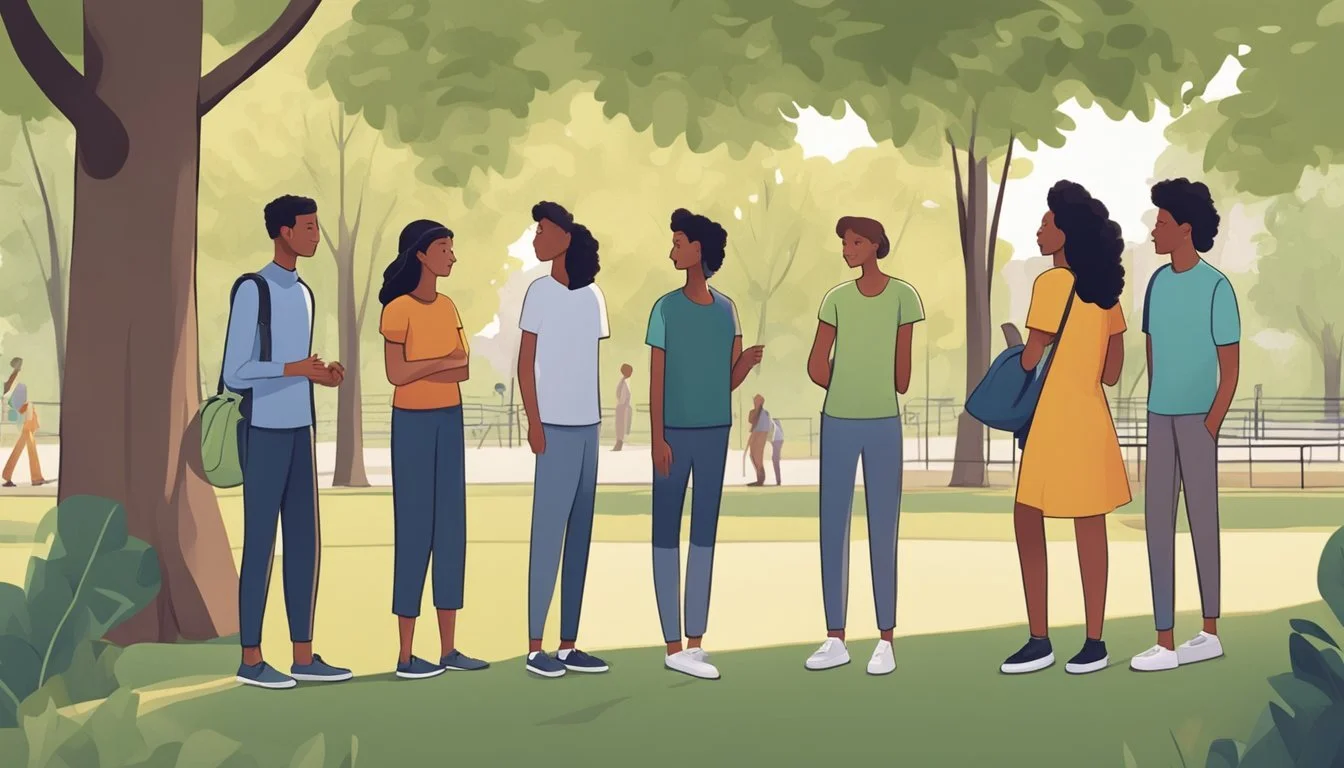7 Tips for Navigating Friendships When You're the Single Friend
Expert Advice for Harmony
Being the only single person in a group of friends can sometimes feel isolating, especially when most interactions and social events revolve around couples. This dynamic can make maintaining a sense of belonging and connection more challenging.
Understanding how to navigate these friendships as the single friend is crucial for maintaining strong, fulfilling relationships. By approaching this situation with the right mindset and strategies, anyone can ensure that their friendships continue to thrive and provide mutual support, no matter their relationship status.
1) Openly communicate your needs
Effective communication is crucial for any healthy relationship, including friendships. When you are the single friend, it’s important to express your needs clearly and honestly.
Start by being upfront about your expectations. Let your friends know how you prefer to spend your time and what activities you enjoy. This transparency helps set the foundation for understanding.
Use "I" statements to convey your feelings without sounding accusatory. For example, "I feel left out when plans are made without me" is more constructive than "You always forget about me."
Direct but kind conversations are key. Approach your friends with respect and ask for the same in return. This helps avoid misunderstandings and keeps the dialogue open.
Listening is as important as speaking. Make sure to hear your friends’ perspectives and consider their needs as well. This mutual understanding fosters a stronger bond.
Acknowledge each friend’s efforts and contributions to make them feel valued. Appreciation goes a long way in maintaining healthy friendships. You can find more insights on appreciating efforts at 7 tips on how to communicate your needs in a relationship.
Active listening demonstrates that you value their input. Give them the space to express their thoughts openly. This can improve the dynamics of the friendship.
Being consistent in your communication establishes trust. Regularly check in with your friends to keep the lines of communication open and healthy.
2) Plan Group Activities
Planning group activities can help bridge the gap between coupled friends and the single friend. Choosing activities that everyone enjoys ensures participation and can strengthen connections.
Book clubs are a popular choice, allowing for engaging discussions about shared reading experiences. Starting a monthly book club promotes not only intellectual stimulation but also bonding over shared interests.
Yoga or meditation classes are great group activities for promoting mindfulness and relaxation. These activities provide a non-judgmental environment where participants can engage in self-reflection collectively.
Organizing outdoor activities like hiking or dog walking can be another effective way to bring the group together. They offer opportunities for casual conversations and physical exercise.
Cooking classes or themed dinner nights also make for enjoyable group activities. These events encourage friends to collaborate and enjoy common culinary interests while socializing in a relaxed setting.
Attending concerts or live performances can offer thrilling shared experiences. These events can bring excitement and a chance to create lasting memories together.
Board game nights provide a fun and competitive atmosphere. They are excellent for fostering camaraderie and light-hearted interactions among friends.
Consider group travel or weekend getaways if schedules align. These trips can deepen friendships through shared explorations and new experiences in different environments.
3) Celebrate their relationships
When you're the single friend, celebrating the relationships of your friends can strengthen your bonds. Showing genuine happiness for their milestones like anniversaries or engagements can foster feelings of inclusion and joy.
Acknowledging their achievements, such as supporting them by attending their events, can make a significant impact. It demonstrates that you care about their happiness and successes.
Take the time to ask about their partners and listen attentively. This can help you stay connected with them and keep the conversations balanced, rather than focusing solely on single life.
Creating opportunities to celebrate together, like hosting a small party or dinner, can help you feel included. It allows everyone to enjoy and share in the happiness of their relationships.
If you're struggling with occasional feelings of loneliness, try to shift your perspective. Remember that their relationships don't diminish your worth or the value of your friendship with them.
Lastly, find joy in the happiness of others. It's a way to enrich your own life and maintain a positive and supportive friend group dynamic. More insights on this can be found on Glam.
4) Set Boundaries
Setting boundaries is crucial when navigating friendships, especially as a single friend. Clear boundaries help ensure mutual respect and understanding.
Communicate your needs openly. Use "I" statements, such as "I need my alone time." This approach minimizes misunderstandings and accusations.
Be consistent with your boundaries. If a friend oversteps, remind them kindly but firmly. Consistency reinforces the importance of your limits.
Balance directness with kindness. While being clear about your boundaries, acknowledge your friend's feelings. This balance fosters healthy communication.
Finally, show appreciation when friends respect your boundaries. Positive reinforcement can help maintain these boundaries in the long term. Respect and clear communication are key to sustaining healthy friendships.
5) Focus on Self-Care
Practicing self-care is vital when navigating friendships, especially if you're single. Self-care helps maintain emotional well-being and provides a strong foundation. One way to practice self-care is to engage in activities that rejuvenate and bring joy.
Exercise is an excellent form of self-care. Regular physical activity can reduce stress and improve mood. Additionally, it provides an opportunity to focus on personal wellness.
Connecting with friends is another self-care activity. Calling a friend to catch up on each other’s lives or discuss goals can strengthen bonds and provide emotional support. Engaging in meaningful conversations enriches your social life and contributes to overall happiness.
Another avenue for self-care involves exploring new hobbies or interests. Consider signing up for a class, joining a group, or starting a side project. These activities not only help in personal growth but also create new opportunities for social interaction.
Setting and maintaining boundaries is also crucial. Ensuring that personal needs are met without compromising yourself enables healthier relationships. Talking to a therapist or a trusted friend can reinforce your commitment to these boundaries and provide encouragement.
Lastly, remember to treat yourself. Buying yourself flowers, taking yourself out, or simply enjoying alone time can boost self-esteem and reinforce the idea that your happiness is a priority.
6) Avoid comparisons
It's easy to fall into the trap of comparing oneself to friends in relationships. Each person's journey is unique, and comparing can lead to feelings of inadequacy and resentment. Embrace your own path.
When a friend shares their relationship milestones, celebrate with them without measuring it against your own life. Relationships, both romantic and platonic, vary widely in experiences and timing.
Focus on your personal growth and achievements. Consider the skills and hobbies that you have developed during your single years. These are valuable and contribute to your individuality.
If the urge to compare persists, redirect attention to self-care and activities that bring joy. Engaging in hobbies, fitness, or new adventures can help shift focus from comparison to fulfillment.
Maintaining a neutral perspective about different relationship statuses aids in fostering healthier, more supportive friendships. It allows for genuine happiness for others while valuing one's own situation.
Remember, whether single or in a relationship, everyone faces challenges and victories. Comparing bypasses the unique aspects of individual lives that make each journey special.
7) Be a Supportive Listener
Being a supportive listener can strengthen your friendships significantly. When a friend shares their feelings or concerns, give them your full attention. This means putting away distractions such as your phone or laptop.
Maintain eye contact to show that you are engaged. Nod occasionally to signal that you are following their narrative. This small gesture can make your friend feel heard and valued.
Use empathetic responses to acknowledge their emotions. Simple statements like "That sounds tough" or "I understand why you feel that way" can go a long way.
Avoid interrupting or giving unsolicited advice. Sometimes, your friend just needs to vent without seeking solutions. Letting them express themselves fully is essential.
Ask open-ended questions to encourage them to share more. For instance, "How did that make you feel?" can prompt deeper conversations. It also shows your genuine interest in their thoughts and emotions.
Periodically, summarize what they have said to ensure you understand correctly. This can also provide them with a sense of validation.
Ultimately, being a supportive listener requires patience and genuine interest in your friend's well-being. It's a key aspect of maintaining a strong and healthy friendship.
Understanding Friendship Dynamics
Navigating friendships as a single person involves appreciating how friendships evolve over time and acknowledging differing perspectives based on relationship status.
The Importance of Different Life Stages
Friendship dynamics often shift with life stages. When friends marry or start families, their priorities and available time can change. This can lead to feelings of distance or differences in availability. Recognizing these shifts is crucial for maintaining strong relationships.
Acknowledging that friends in different stages of life might have new commitments helps mitigate misunderstandings. For example, a once-spontaneous friend may no longer be able to meet at a moment’s notice due to family obligations. By being understanding and adaptable, the single friend can maintain these important connections.
Moreover, being open to group activities that include their partner or family can also help bridge the gap. It's about finding new ways to connect that respect each other's current life circumstances.
Perspectives on Being Single
Being the single friend can sometimes feel isolating, especially in social settings predominantly attended by couples. Despite this, every individual brings unique perspectives that enrich the friendship. Embracing your single status allows you to offer different viewpoints and experiences that can be refreshing to your friends.
Single friends often provide an essential balance in social circles. They contribute varied ideas and spontaneity which can sometimes be less prevalent among those in committed relationships. This diversity can lead to deeper, more meaningful conversations and experiences.
Furthermore, it’s vital to communicate openly with friends about feelings of exclusion or imbalance. Mutual respect and understanding can foster a more inclusive atmosphere, ensuring that the dynamics remain healthy and supportive.
Maintaining Healthy Boundaries
Establishing healthy boundaries in friendships can prevent misunderstandings and ensure mutual respect. This section addresses key strategies to communicate your needs effectively and maintain respect for differences.
Communicating Your Needs
When setting boundaries with friends, clarity is essential. Use "I" statements to express how you feel without placing blame. For instance, saying “I feel overwhelmed when plans change last minute” is more effective than “You always change plans.”
Be direct yet kind. Clearly state your limits, such as your availability or topics you prefer to avoid. Avoid apologizing for setting boundaries as it can undermine their importance. Instead, reinforce the value of the friendship. Remind your friend that these boundaries help maintain a healthy and respectful relationship.
Additionally, consistency is crucial. Once you've communicated your boundaries, adhere to them. If your friend sees you consistently respecting your own boundaries, they are more likely to understand and respect them as well.
Respecting Differences
Friendships thrive on mutual respect, which includes honoring each other's boundaries. Acknowledge that your friends have their own limits and preferences. Demonstrating respect for their boundaries encourages them to reciprocate.
Self-awareness and accountability play a significant role. Reflect on your actions and ensure you are not overstepping the boundaries your friends have set. This creates an environment of trust and respect. For example, if a friend prefers not to discuss certain topics, make an effort to avoid those in conversations.
Showing appreciation when friends honor your boundaries can reinforce positive behavior. Let them know when their actions positively impact you. This promotes a balanced and respectful dynamic in the friendship.









